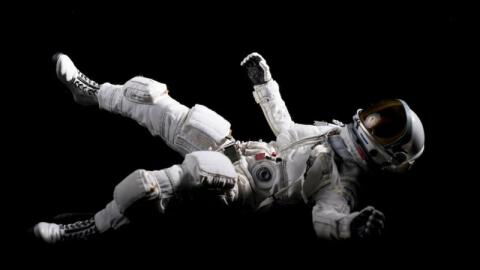After 340 days spent onboard the International Space Station, is it really Scott Kelly who returned to Earth? Well, not exactly… As a result of his trip into orbit, the body of the American astronaut has in fact undergone a series of biological changes, particularly a modification of his DNA, as is shown by a study led by NASA.
Discover our latest podcast
In order to analyse the evolution of the genome, scientists at the American Space Agency have just had to compare it to a perfect replica: his twin, Mark Kelly who remained on Earth. Before Scott’s adventure into space, the two brothers had exactly the same physical, biological and genetic characteristics.
But since the astronaut returned two years ago, researchers have noticed surprising differences: Scott Kelly was 5 centimetres taller than before he left, his body mass had reduced, his intestinal microbiota was disturbed, and his DNA, or more specifically, the expression of the DNA, had undergone changes.
New discoveries
More recently, since the end of January, a new revelation has confirmed the changes undergone in Scott Kelly’s genome. Scientists at NASA had since discovered proof: the last year spent in space changed the expression of certain genes, more precisely by activating hundreds of “spatial genes”. In consequence, his immune system, the forming of his bones, his vision and other physical processes have been altered.
'When he returned from space, this produced a firework of gene expression,' Christopher Mason, one of those responsible for the study and the Associate Professor of Weill Cornell Medical College explained to Business Insider. Most importantly, these changes are partially irreversible: although some of the genetic modifications returned to normal by themselves after he returned to Earth, around 7% of them were still present after two years of returning.
In addition to the processes mentioned above, the changes that have endured concerning the genes implicated in repairing the DNA as well as those responding to an environment low in oxygen or rich in carbon dioxide. Indeed, these modifications could be a bodily response to the environment in space, but the causes of these problems still aren’t clearly established.
The spatial stress influences the gene action
'These changes are assumed to be caused by the stress of travelling in space, which can cause changes in the biological cell pathways,' continue scientists at the American Space Agency in a report. 'Such actions can trigger new molecules to assemble as a lipid or a protein, cellular deterioration, and can activate or block genes that change the cellular function,' claims NASA.
Christopher Mason, however, advances a hypothesis to explain this biological reaction that is still poorly understood: 'Often, when the body encounters something foreign, an immune response is activated. The body thinks that there is a reason to defend itself. We know that in some ways, being in space isn’t a pleasant experience, and this is the molecular manifestation of the body responding to this stress.'
Nevertheless, researchers highlight that this type of gene expression modification is not a surprising or rare phenomenon. Even on Earth, exposing an individual to a different or stressful environment can lead to alterations in the expression of their DNA. The breakthrough of the subject of Scott Kelly is no less interesting for specialists.
Towards a better preparation of Martian travels
Even though NASA is currently trying to identify all the conditions required to travel in space for a long period of time, and particularly to Mars, it is better to understand the reasons and the mechanisms that activate the “spatial genes” could contribute to making such missions that have been planned for almost three years possible.
Researchers are only at the beginning of their discoveries. Analysis is continuing thanks to meticulous work of more than 200 scientists from around thirty countries, who are working on the study of genetic, physiological and biological modifications caused in Scott Kelly’s body after his voyage onboard the ISS.
These international specialists promise to also provide other findings, in a study which will be published within a few months. Only a little bit of patience is needed to discover the full extent of the physical disturbances induced by the fearless American astronaut Scott Kelly.















